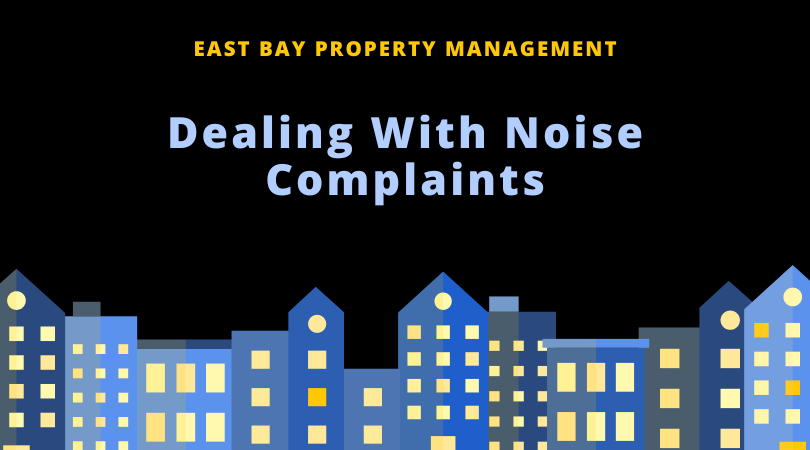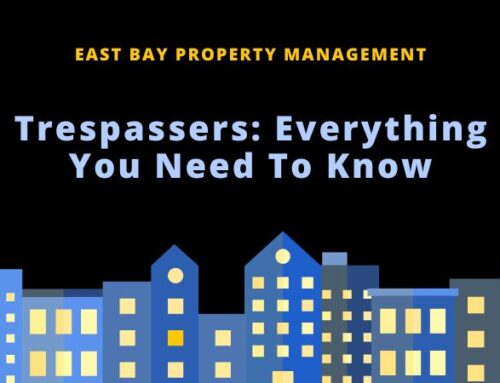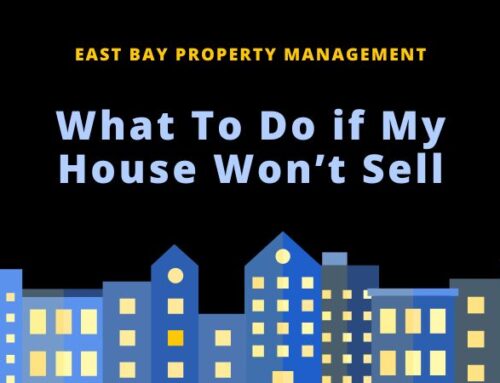Most tenant complaints landlords deal with are related to noise disturbances. Noise is part of everyday life, but some individuals are more sensitive to noise-based disruptions than others. If you own a multi-family rental or your unit is in a densely populated area, you might have to deal with numerous noise complaints.
If you want to learn how to deal with noise complaints in a stress-free way, we’ve got you covered! This article will dive into the best way to approach this kind of complaint.
Types of Noise Complaints
Noise complaints are typically made when recurring or ongoing noises disturb tenants’ right to quiet enjoyment. Noise disturbances are more likely to be submitted in the evening or at night.
Below are some of the most common causes of noise complaints you may encounter.
Dogs
Dogs can cause noise disturbances if they bark loudly when your tenants are home. The best way to deal with this kind of noise complaint is to talk with the dog owner and figure out a way to stop the dog’s barking.

However, if you get a noise complaint about a dog for a rental you own with a no-pets policy, you may need to evict or pursue legal action against the tenants for breaking their lease.
Construction
Noise from home repairs or renovations is permitted, but only during certain hours of the day. If one of your tenants is making noise from construction at unreasonable hours, it’s best to talk to them and establish a timeframe in which they can work on repairs or renovations.
Additionally, if a third party is constructing a structure or performing renovations outside standard hours, we suggest speaking with them directly before making a formal complaint to the city or county.
Parties
Hosting small gatherings from time to time is normal. However, if a tenant hosts loud parties regularly without consulting other individuals in the neighborhood, disciplinary action may be necessary.
Arguments
It’s normal for individuals to have disagreements now and then. But loud screaming matches that occur regularly should be dealt with immediately, especially as they may indicate domestic abuse or other serious issues. In cases where you are concerned about violence, it’s best to contact the authorities instead of handling the issue yourself.
Motor Vehicles
The sound of engines revving or music blasting from car radios during quiet hours can lead to plenty of noise complaints, especially in densely populated neighborhoods.

Because it can be difficult to determine who is causing the noise, it may be best to contact the local authorities to handle these issues.
How to Assess a Noise Complaint
Before taking action, it’s important to assess the validity of the complaint and severity of the issue. That’s why it’s best to have a conversation and actively listen to your renters to figure out what’s going on prior to escalating the situation.
We also recommend talking to neighbors or other tenants to determine if the noise issue was a one-time thing or has become a common occurance. To further assess whether a noise complaint is valid, you should check your state’s jurisdiction to see if the noise is legally defined as a disturbance.
Once you’ve gathered all this information, there are two possible outcomes, as detailed below.
The Complaint Isn’t Valid
If the noise doesn’t constitute a disturbance or the individual being accused did not cause the issue, you’ll have to communicate with the tenant who issued the complaint. Explain that you assessed the situation and that the evidence suggests the complaint isn’t valid. Additionally, let them know they can reach out to you if the issue persists or becomes recurring will help keep your tenants happy.
The Complaint Is Valid
If a complaint is valid, you’re response should match the severity of the issue. One-time offenders can provided a warning or a compromise that suits all parties.

But if the issue persists or indicates a dangerous situation, you might have to pursue legal action or even serve an eviction notice.
How to Handle a Noise Complaint
When a tenant or another individual issues a noise complaint, you should find a way to deal with the issue that doesn’t affect your relationship with your renter. In the worst-case scenario, repeating noise complaints can lead to eviction if your tenant is at fault or inspire your tenants to move to another, quieter rental.
Below are five effective ways to address noise complaints.
Put a Clause in the Lease
The best way to prevent noise issues is to include a clause in your lease agreement regarding acceptable and unacceptable noise levels. This will come in handy if a complaint ever arises.
Soundproof Your Rental
Soundproofing your rental can help prevent noise complaints. This is an especially good idea if you own a multi-family unit or have a rental in a highly populated area.
Ask the Individual to Make Some Changes
Communicating with the individual causing the issue is the best way to handle a noise complaint. This way, you can let them know how their actions are affecting their neighbors. Plus, you can work together towards a resolution.
Find a Mediator
If the person causing noise complaints refuses to make any changes or discuss the matter with you, it’s best to contact a professional mediator to solve the problem.
File a Report With Your Local Authorities
By reporting the issue to your local Department of Public Health or the police department, you may be able to get a noise-abatement notice issued.

This can help resolve the problem or, if one of your tenants is at fault, be used to serve an eviction notice in the future.
Bottom Line
Although landlords aren’t responsible for the noise made by their tenants or other people living near the rental, it’s best to deal with noise complaints quickly. If you receive a noise complaint, it’s crucial to investigate the issue. Once you’ve assessed the situation, you can determine whether the complaint is valid or not.
If you have any questions about dealing with noise complaints or are looking for a property manager to handle these issues for you, contact East Bay Property Management!






